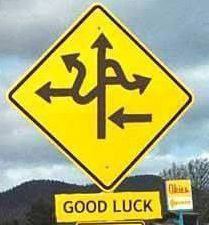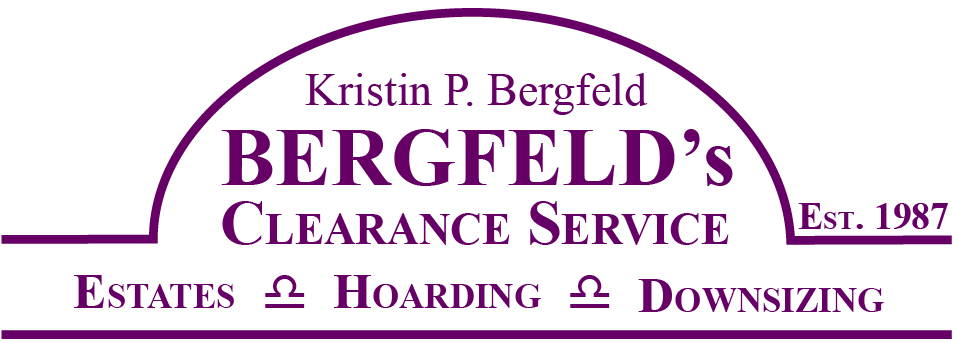 Where to turn?
Where to turn?
Clearing a home for any reason can be a trying experience. Whether you are relocating, clearing an estate or reducing the risk of hoarding, the details involved in getting the job done are unfamiliar terrain for most. It gets even more complicated if you are trying to organize it from a distance or if there are multiple parties involved. It’s hard to know how to begin or where to turn.
There is no single, simple or correct way to get it done. Your needs and wishes are what will determine the right direction and process.
Over our 30 years of successfully serving clients in all manner of transitions, we’ve developed a full range of services to meet those needs. We invite you to review our services, and select from among them according to your special needs, agendas and time tables.
How do you get started?
First, we offer a one hour complementary assessment with you in the home. We need to hear your goals and concerns as well as view the personal property to be managed. We then draft a “Contract Proposal” based on your requirements specifying tasks, schedule, scope of work and estimated cost. Once your “Contract Proposal” is finalized, we send it to you as well as other people you specify such as your attorney, accountant, or family members for signatures. When your signed Contract and deposit have been received in our office, we put you on our schedule and begin your work.
How does BERGFELD’s get started?
There are many questions and variables which need to be incorporated into your Contract. Below is an overview of BERGFELD’s process.
What to keep? First and often most important are questions about papers, essential files and records that must be kept (medical, legal, tax and banking). We can help you identify these. Next, valuables that family members either did not know were there, or were misplaced years ago. We have uncovered many hidden treasures during the course of our work including safe deposit keys, bearer bonds, land deeds, photos of ancestors, precious correspondence and jewelry.
Who gets what? To start, we want to set aside and secure the items you want to keep. For an estate, there is usually a written Will which stipulates items that are to go to certain people. If a Will further stipulates “equitable distribution”, it might be necessary to have the personal property professionally appraised. We can help you find the right appraiser if you don’t have one.
For items not designated in a Will, or for clearance projects of homes for reasons other than the clearance of an estate, we can also help you decide which possessions to keep, to give to others, and which to sell or donate. Often, clients ask us to sort through possessions and prepare an organized inventory of contents of the home (usually including photos). With your approval, we send this inventory to all parties whom you specify so that they can identify which items they would like to have. A similar process works well if you are ‘downsizing’ or needing to reduce the volume of hoarded possessions in the home.
How to get it to them? We can make all arrangements for shipping, moving and storage for you. Over the years we have worked well with a range of national and local movers and delivery services. We get competitive written estimates for these services for you. Frequently, we photograph “high value” pieces in the home to document their condition before shipment in case of damage during the move. We encourage clients to get these insured.
We will review the movers’ estimates with you, and you decide which you prefer and you retain them directly. Many clients request that BERGFELD’s work with their mover and oversee their packing and shipping.
What’s it worth? How much can I get for it? This is among the most important questions on clients’ minds. While we are not certified appraisers, we can assist in finding the range of value for certain items. In recent years, there have been major shifts in the antique, consignment, ‘gently used’ market here in the Tri-State, metropolitan New York area. Furnishings and decorative objects, even designer clothing that used to sell well, have been less popular. This is partly a reflection of changing trends. Cleaner, more modern and casual décor has replaced the highly decorated wooden breakfronts, silver tea service and fine china. Even a much loved and well maintained piano has become more difficult to sell.
While ‘high end’ antiques and art still attract dealers, other items may have more sentimental than monetary value and may even be worth more as a tax deduction if donated. However, because of our long standing professional associations with dealers and auction houses, we regularly find dealers who will pay higher prices than if a client were to seek bids on their own. When you decide which items to offer for sale, we invite prospective dealers to come to the home, view the items you want to sell and write down their bid to purchase them. We then analyze the bids with you and you decide which to accept and which to reject. You are paid in full by your accepted buyers.
BERGFELD’s works for and is compensated by our clients only. We are not a ‘buy out’, liquidation or consignment dealer. We also do not take possession of a client’s property and do not own a gallery. We have no financial stake in any sale of your personal or real property and would decline it if offered. The only beneficiary of the sale of property is you.
How do I donate to charities? What about tax deductions? If you or your family have certain charities you would like to have receive items, we will direct your donations to your preferred charities as much as possible. We will type up an inventory of your donations, make all arrangements for pickups and complete paperwork for you to give your accountant for your tax deductions. You may want to discuss the tax deductions with the estate attorney or accountant to maximize the benefits.
How clean does the emptied home need to be? If it is being turned over to the landlord, often a “broom clean” is sufficient, if it is to be sold, sometimes a more thorough cleaning is required. In the case of a clear-out where there is a threat of eviction, our main objective is simply to make the home safe for our client and satisfy the complainant’s requirements.
What about documentation? At the end of our work, we compile a Final Report which may include records of sales, donations, inventories, receipts for shipping, carting, and other expenses, photos, as well as copies of IRS tax publications and forms related to valuations and tax deductions for donated items.

